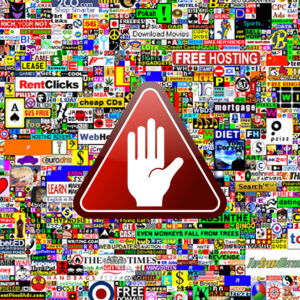 What do you think about ad blockers?
What do you think about ad blockers?
I’m referring to browser plugins and PiHole and other such systems where you programmatically block ads. At present, these systems work by URL or domain matching. When your page loads, either the code for an ad is blocked or some domain such as ads.obnoxiousadvertiser.com is blocked, and in theory you see the page without ads. DNS blocking systems like PiHole extend this to work in applications as well – e.g., you don’t see in-app ads on your mobile device.
Of course, many publishers don’t like this for obvious reasons, and so you get into an arms race of “we notice you’re blocking ads, please whitelist and reload,” etc. Today we have ad-blockers, ad-blocker-blockers (“please whitelist to continue”), and I’m sure ad-blocker-blocker-blockers (code that attempts to fool the please-whitelist code) are on the way, and then they’ll be foiled by ad-blocker-blocker-blocker-blockers (that stops the code that is try to fool the please-whitelist code). The next logical step would be ad-blocker-blocker-blocker-blocker-blockers. I hope it gets to that point because I’d like to hear a TED talk with that terminology.
Some blockers are not “scorched earth” blockers but instead have “acceptable ads”. So if an ad that is appropriate to the page appears where your eye would naturally expect an ad, you’re OK with that, but not crazy flashy stuff or obnoxious browser-trapping ads.
So what do you think about ad blockers?
Pros
- Ha ha, I get to look at the web without ads!
- Avoid a ton of obnoxious ads and problems (e.g., the “50 redirects to poison your history” ads)
- Less bandwidth consumed
- Can filter out things that upset you or you find inappropriate or just would rather not see
- In theory, improved privacy
Cons
- Web sites you like don’t get revenue. If the entire world ran ad blockers, the web’s business model would not work.
- Some sites will be off-limits because they won’t let you in if you’re blocking ads. Some people have a “blocking browser” and a “nonblocking browser” to make switching easy.
- The arms race. Turning on an ad blocker also turns on interstitial “please whitelist us” popups on tons of web sites.
- In theory, if ads are targeted, you’ll see lots of things you might actually be interested in. In practice, well…
Now we’d like to get your feedback. What do YOU think? Let us know in the poll and comments!























If people don’t want ads on a site, they should pay for access to it. If you block ads, you shouldn’t get access to ad-supported content. Simple as that.
Tons of news/media websites do that now with their paywalls.
I wonder if they produce more revenue from subscriptions vs. allowing traffic from all sources and displaying banner ads (granted some get blocked by adblockers).
Static banner ads were OK.
Text link ads were fine.
Animated ads were annoying.
Pop-up ads were where the line was crossed. That’s when blockers first started appearing.
Full screen ads lead me to promise myself to never buy anything advertised in one.
Ads with sound are what made me install an ad blocker.
I allow “reasonable” ad formats and ads that are served directly from the site itself. If a site won’t let me view it with an ad blocker, that’s fine. I won’t go to it. I have given up fighting the war. Adieu, ad filled sites. They have lost me and I don’t miss it.
But there also are fast and efficient text-only browsers (on Linux or apps) on which most adds simply do not work.